What I learned at the Community Based Adaptation 15 Conference
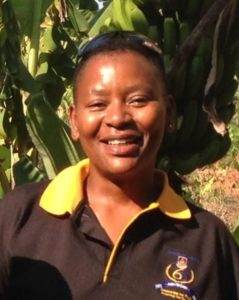
Maria Goss, Agriculture Systems and Innovation Leader for Practical Action in Southern Africa
Can Indigenous Knowledge Systems feed a growing world?
I attended the Community Based Adaptation Conference (CBA) 15 to share my learnings from my work in Zimbabwe with smallholder farmers and to explore how it can be taken to scale.
Practical Action has been working with smallholder farmers and key stakeholders for many years to enhance farmer seed varieties and traditional crop species.
These initiatives and approaches have been identified as key to building food and nutrition security, improving absorptive capacities and coping strategies to the adverse effects of Climate Change.
Seed security remains critical to food sovereignty and building the communities adaptive capacity and resilience; but it is also key in conservation of natural resources and enhancing biodiversity at scale.
I work in Zimbabwe and the country has been experiencing increased frequency of extreme weather in recent years, compounded with the recent COVID19 pandemic.
This has revealed the need for community-led adaptation and mitigation strategies using locally available resources. Zimbabwe is divided into natural agroecological zones or natural farming regions based on temperatures and rainfall experienced, and other geospatial aspects. As a result, indigenous seeds are adapted and perform significantly better in each natural regions.
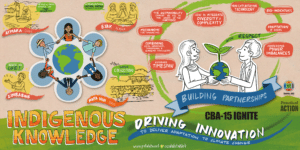
Captured learning from Maria’s session includes the need to find new mechanisms to finance more work like this.
What have we done?
Practical Action has worked with Government of Zimbabwe plant breeders in what is known as Farmer-led Plant Participatory Breeding approaches. We have worked with farmers to improve training on a number of aspects of their work:
- better performing varietal selection,
- production,
- multiplication
- preservation
- storage
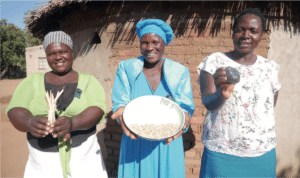
Farmers show a selection of produce from the seed market.
This has resulted in good quality indigenous seed production and conservation of fast-disappearing local germ-plasm and neglected and under-utilised plant species.
Knowledge of indigenous cropping systems, agro-practices integration and diversified food production systems have provided a variety of livelihoods sources for the marginalised communities of Zimbabwe, and also help to ensure food security for those who use them.
These interventions have demonstrated the need for a multi-sectorial and engagement of all key drivers within the sector. This needs to be supported by inclusive market and enabling policy environments and targeted research initiatives.
Though farmers are committed to integrate indigenous knowledge systems and modern technology so they work sustainably, small holder farmers lack the resources for scaling up.
There is very little buy-in from the private sector players and financial institutions and this must change.
What I learned at CBA 15
My session with other experts in the field emphasized the realities of climate change impacts globally and the need for coordinated climate action and targeted climate financing.
But it also highlighted the critical role ancestral knowledge, practices and technologies have played in enhancing food security and climate resilience since time immemorial, and even today.
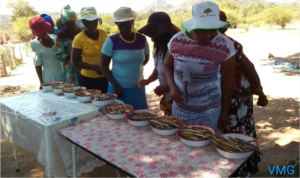
Farmers can share ideas, information and learning as well as produce at seed markets.
We agreed there is urgent need to lessen the burden of preserving these knowledge systems which lie squarely on the marginalised communal farmers, by identifying strategies to offer support and aid in a more systemic way:
- New Partnerships: One of the most valuable aspects of the conference is that it brings together practitioners who have similar goals and experience. This year, there were at least 3 partnerships I felt were worth engaging in further dialogue with and together we will assess if these loosely identified synergies can result in anything significant.
- A re-evaluation of the southern African agriculture strategy and the identification of strategic partnerships: which would not only resonate with climate resilience, but also mitigation. In this way I hope to bring out more innovative ways of working with academia and research professionals to ensure coordinated preservation of ancestral and traditional systems in agriculture.
- Identification of non-traditional potential donors: a new focus on the private sector, research institutions, agriculture engineers and to work on my presentation of propositions on sustainable multi-sectoral responses to climate action at scale.
If you would like to contact me and discuss any of the issues I have raised, please do so via my LinkedIn profile or email [email protected]
Find out more
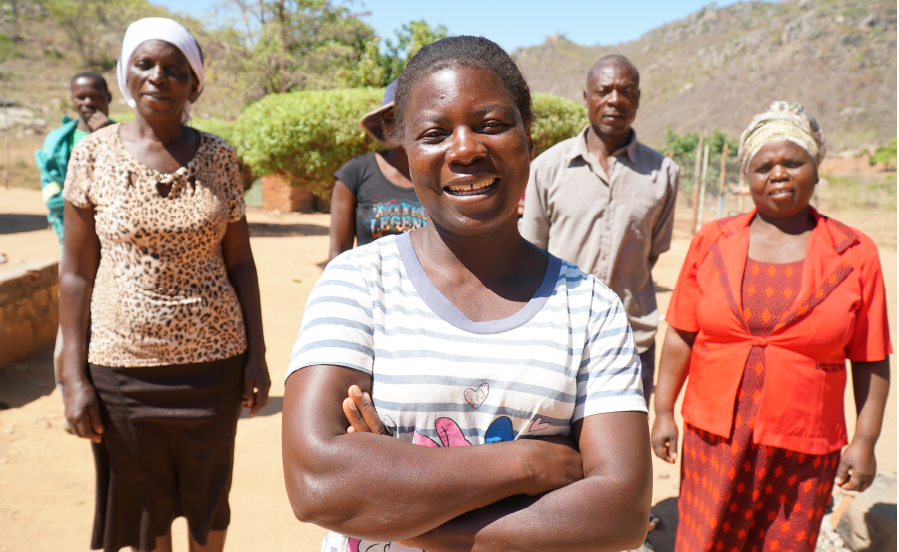
Join us at events around the world
We will continue to build on the momentum for change amongst global leaders and the public at international events that address man-made climate change, loss of biodiversity and inequality.
View events